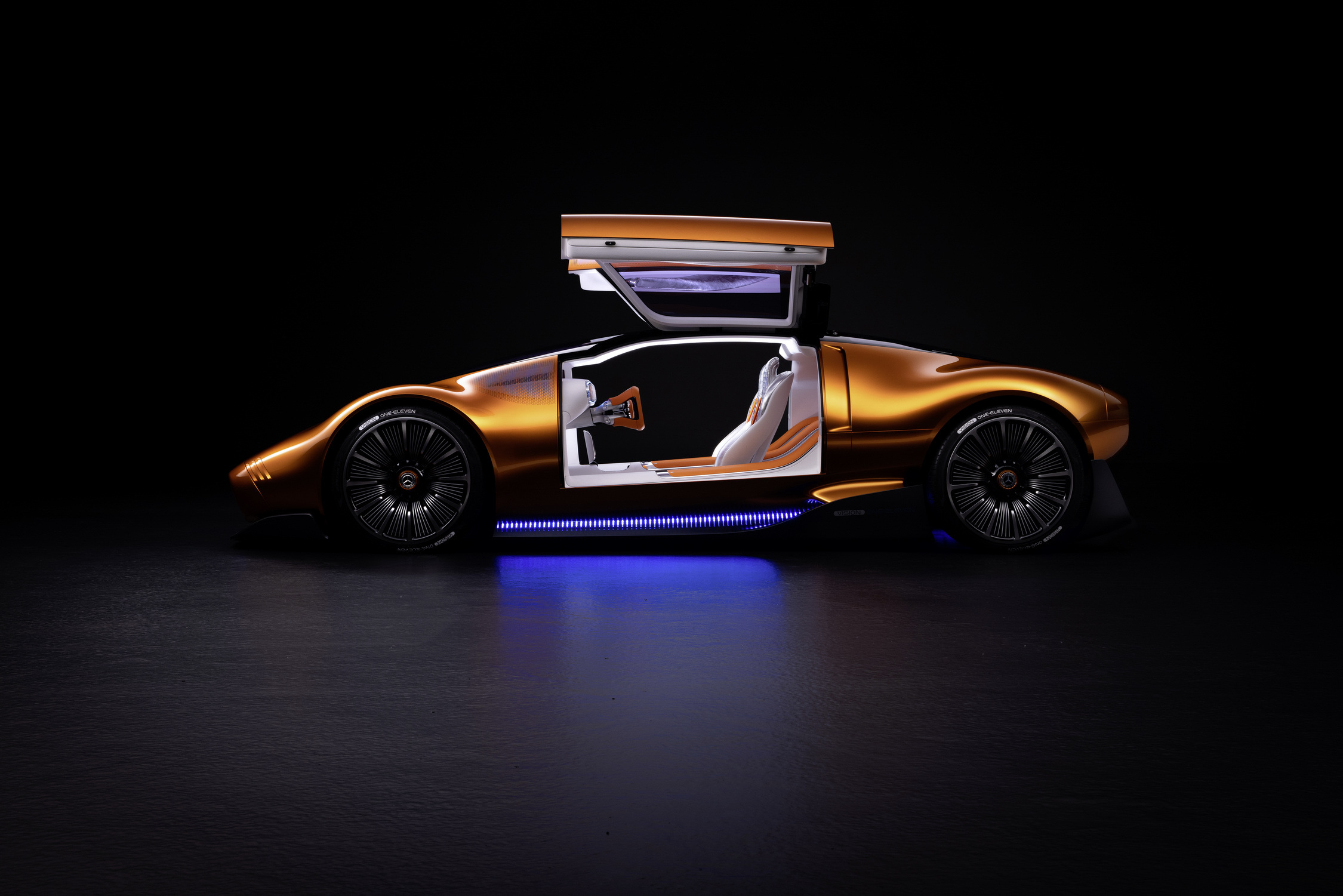Mercedes-AMG is poised to expand its electric vehicle offerings with a new supercar concept, according to recent reports. The as-yet-unnamed model is expected to debut later this year and promises to redefine high-performance electric vehicles.
Industry insiders suggest this new supercar will be the fastest-accelerating AMG ever produced. It’s expected to leverage advanced technologies, potentially including a solid-state battery and axial-flux motors.

One possible design inspiration could be the Mercedes One-Eleven concept, which was introduced in 2023. The new model is intended to showcase the future of electric performance. A company source stated, “Where the EQXX aimed to go the furthest, this aims to go the fastest. It will be the fastest-accelerating car AMG has ever produced.”
The supercar concept will preview the German automaker’s next-generation electric powertrain technology, including axial-flux motors. These innovative motors are also slated for use in future production models, like a high-performance crossover.

It’s also believed that Mercedes is exploring the use of advanced battery technology. The company has begun testing a modified EQS with a solid-state battery, demonstrating the potential for increased range, up to 621 miles (1,000 km).
Mercedes recently revealed plans for a series of new and refreshed models. These include 17 electric vehicles and 19 models with internal combustion engines. The company will redesign the GLC and introduce updated versions of the GLE, GLS, and S-Class. Also planned are an electric E-Class and a smaller ‘baby’ G-Class. The redesigned CLA is expected to debut next month, followed by the CLA Shooting Brake.
The redesigned GLB is scheduled for a late 2025 arrival, with the smaller G-Class expected in 2027. The latter will be built on the MMA platform and may come with single and dual motor options. Interestingly, a ‘comprehensively’ revamped EQS, potentially adopting the S-Class name, is slated for a 2026 unveiling and will ride on the MB:EA Large platform, even though prior reports suggested the platform’s development might be halted.




